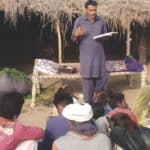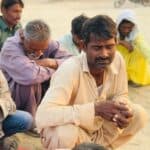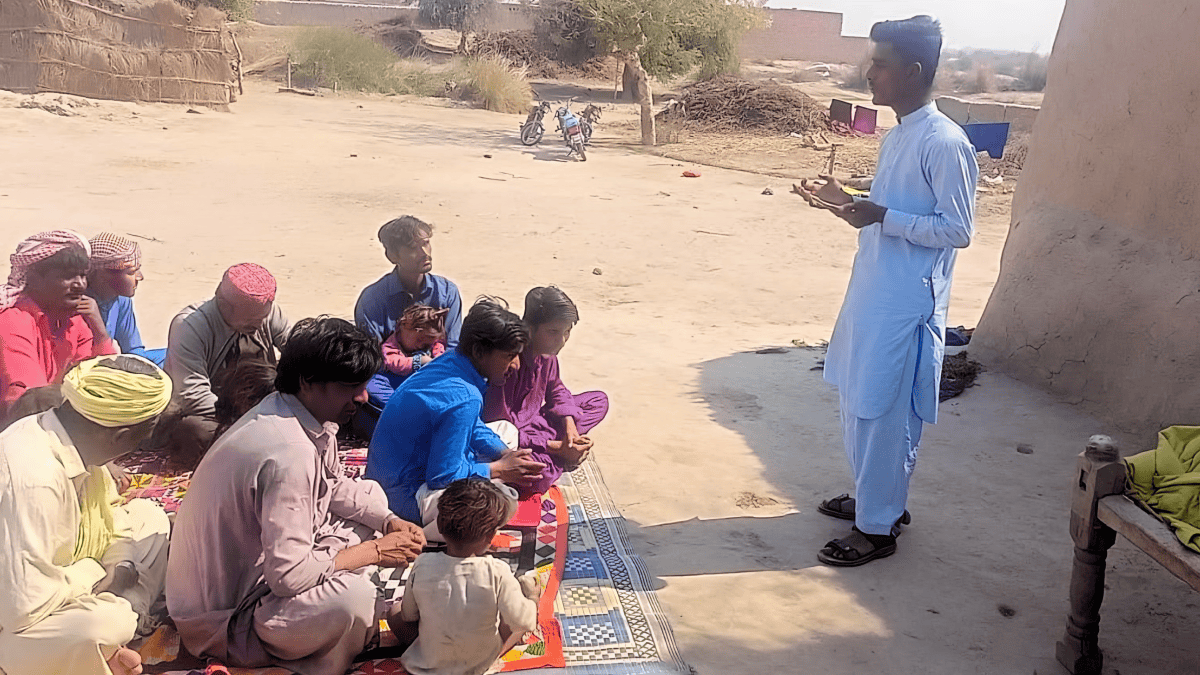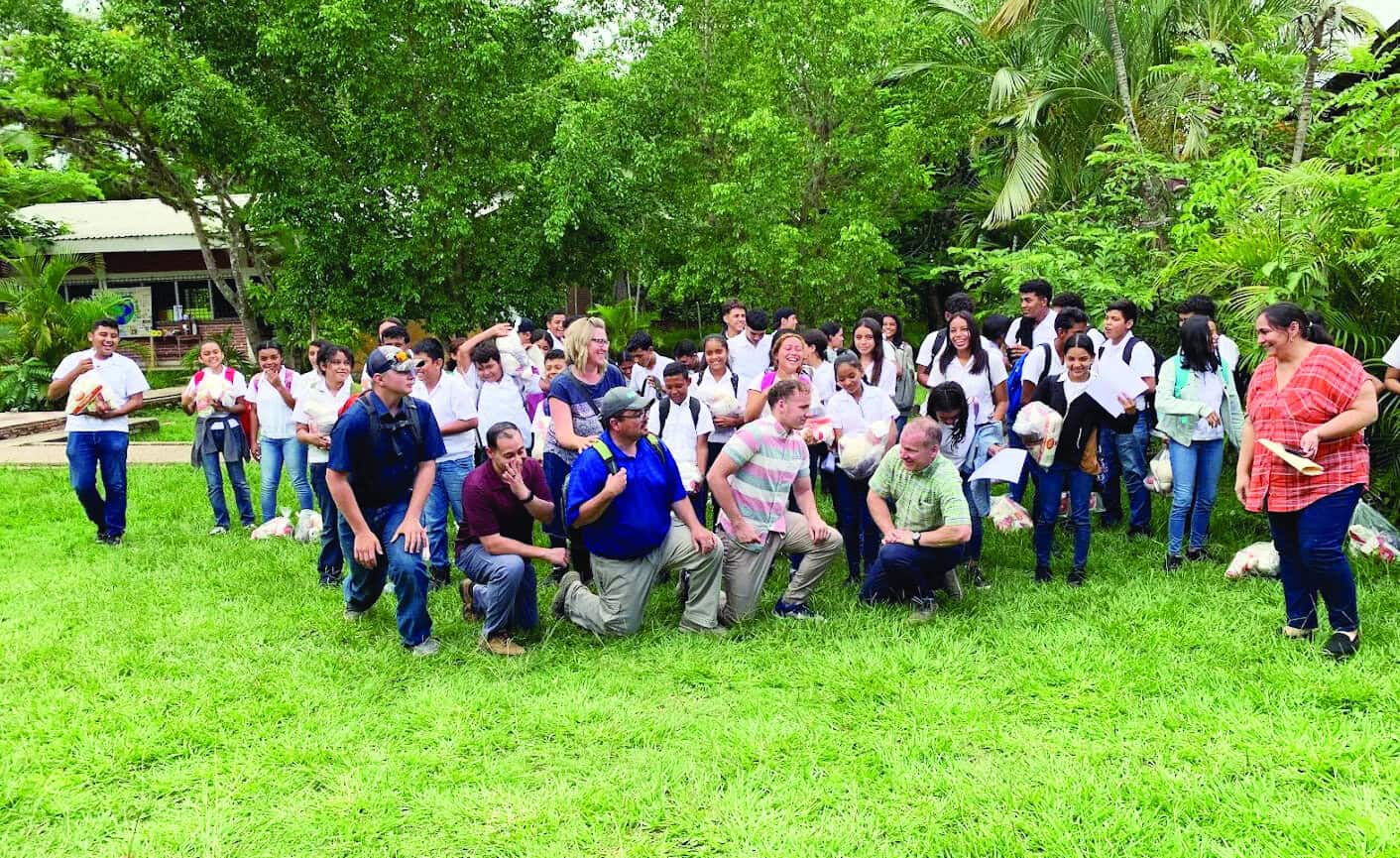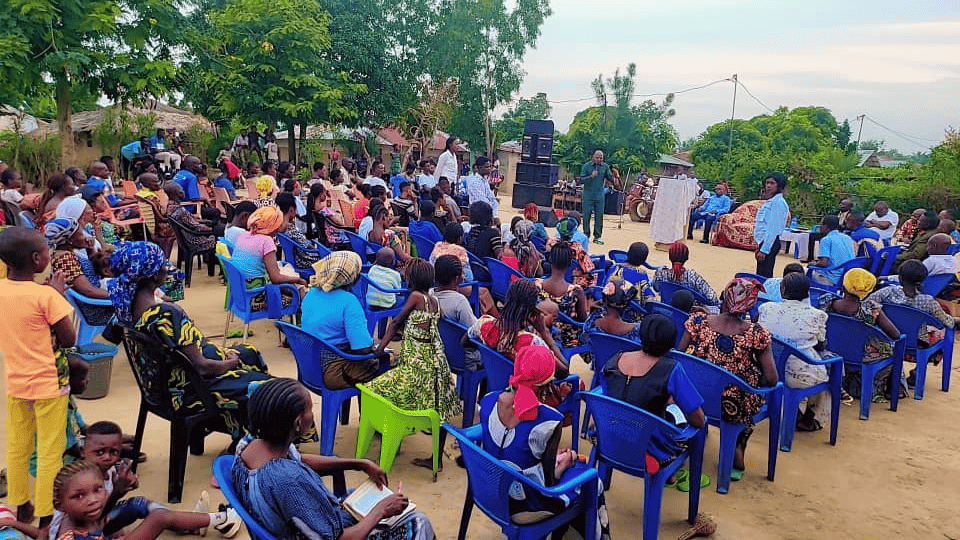The Marwari tribe lives along the eastern border of Pakistan and India. Though technically and legally citizens of one country or the other, they consider themselves citizens of the tribe. Such is the case with Beejal Gee, the father of Rajeva, a young Timothy making converts and starting house churches among his people.
Most of our consistent readers are aware of our growing involvement in Pakistan. You may not know that we delayed supporting men there for over a decade, giving us time to select from the options by properly and thoroughly investigating their lives, ministries, and work ethics. Finally, we settled on a specific young pastor (now in his mid-thirties), Shaukat Siddique.
Shaukat views his members not as a flock for whom he must seek fertile grazing lands and cool streams but rather as a flock to be trained to produce more flocks, with each discipling converts and training more pastors and evangelists to plant more churches. What captured my attention most about him was that he is a pastor but highly involved in church planting and training Timothies. For example, earlier this year, he opened a new branch of his institute on the far side of his city, and it started with over thirty young men and ladies, not seeking an education or diploma but training in evangelism, teaching, preaching, discipleship, and church planting. Shaukat had one institute in his house three years ago, which we fully outfitted; today, he has at least eight, with hundreds of students already serving. Three years ago, he had three churches; two years ago, he had eleven churches, and now, he has over 160.
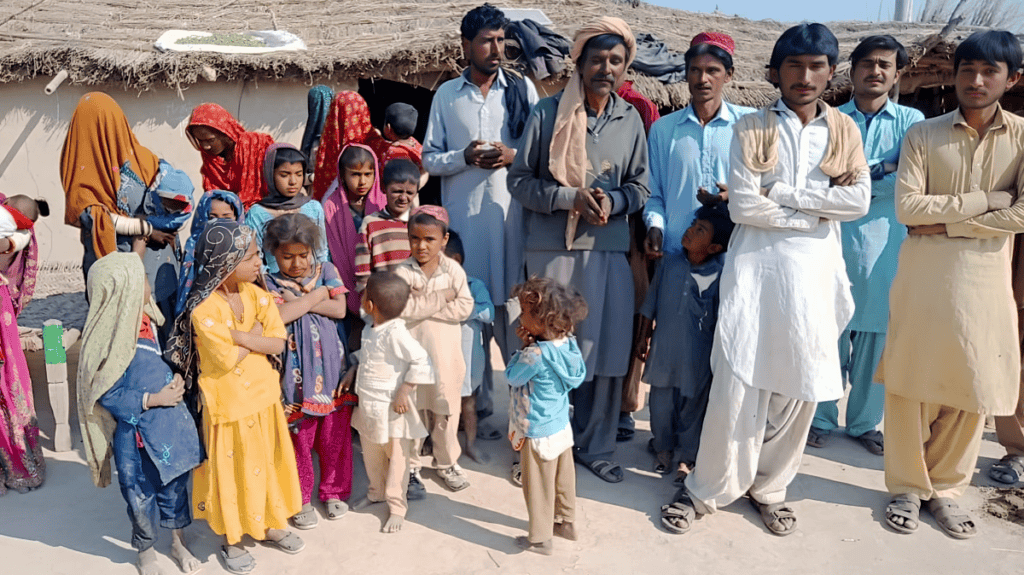
In yet another village, these Marwari converts turned from idolatry to Christ, and Rajeva planted another new church.
During my trip to Pakistan at the close of 2023, I had the pleasure of meeting Rajeva Gee, and now I want to share his ministry with you. Though he is too young to be a pastor or even be directly funded as a church planter, he has already started three churches with the financial aid of the Great Commission Fund, which provides for his training, transportation, and ministry expenses.
I was drawn to Rajeva Gee when I first saw him. He is quiet, tiny, and thin, yet he maintains a mature and serious facial expression. Even when he smiles, his eyes seem not to match the expression of his mouth. Instead, they seem to peer into the future, seeking purpose and expressing the dedication and resolve of a warrior. When I first enquired about him while meeting the students individually and hearing their testimonies, I assumed he was twenty-five or older and was shocked to learn he was barely seventeen years old.
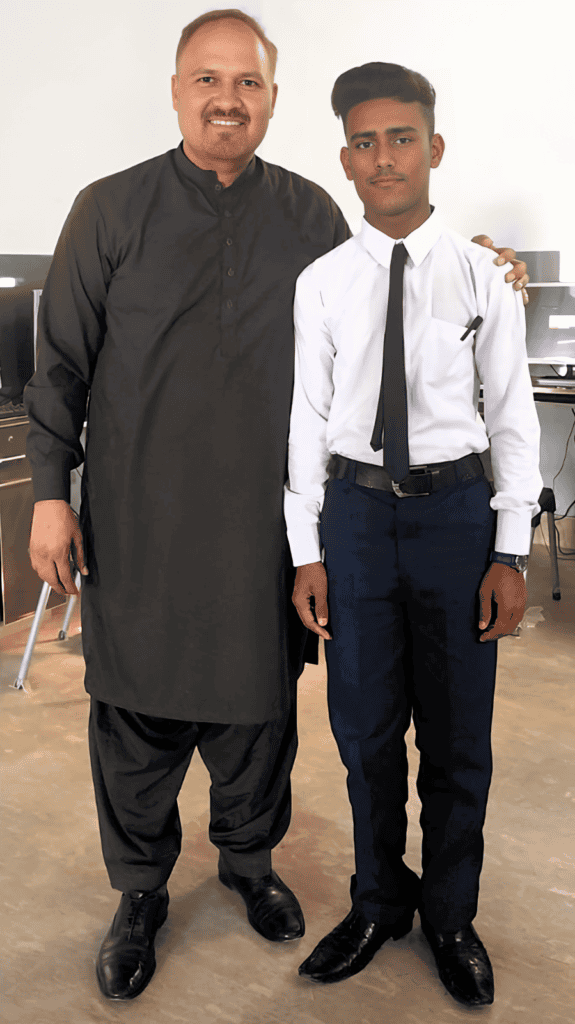
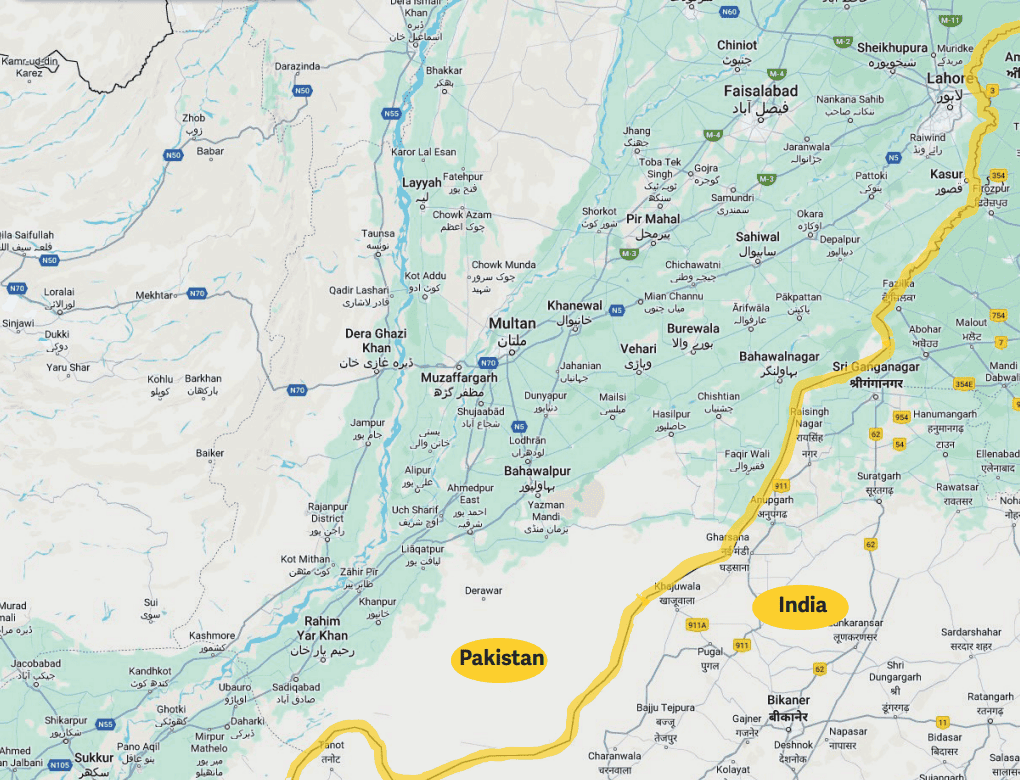
Having visited with Shaukat in the region of his home city, Lahore, and in the deserts a twelve-hour drive away, it is commonplace to see that he produces “fruit that remains” wherever he goes. What is so uncommon with him, however, is that he leaves behind not only converts but also young men and ladies who want to forsake all and follow him, much as did Peter, James, and John when they forsook all and followed Christ.
For Shaukat, it is not enough to win souls; he believes he must establish a church, send a pastor to care for them, and train their young converts to become future pastors and leaders. He is the physical embodiment of the Great Commission. I wanted to share the life and testimony of this young Timothy with you, so I asked Shaukat to give me information about Rajeva. He responded by email on February 25, 2024:
“I met His father last year (2023) in his village called “148 B. Sadiqabad,” where my team and I went to evangelize. He had never heard about Jesus Christ. He joined our meeting in his village, and as I shared the Gospel of Christ, he listened very carefully. I invited people to accept Jesus Christ, and he stood up and raised his hand to turn away from his tribal animism and follow Jesus Christ publicly. After our outdoor service ended, he requested me to come to his house, where I met his whole family. He has four kids: three daughters and one boy. He then shared with his family that he had just accepted the Lord Jesus Christ to be his God and Savior. His wife was not interested in following Christ because she did not want to leave the religion and customs of their tribe. Still, I shared the word of God with all of them. I didn’t force his family to follow Christ. When we left their house, I requested him to continue to follow Christ; I also gifted him a new Bible and promised that I would come back and meet with his family and the new church again.
“After six months, we met again, and he told me that he had won his whole family to Jesus, and they wanted to be stronger in Christ. Then he told me that he wanted to win his whole village and his entire tribe, so I gave him more notes about the Bible to study, and I suggested he send his son to our Bible college. That same day, he sent his son to go home with me, and Rajeva joined his future to ours. After only six brief months of learning the Bible, Rajeva returned to their home to visit his family. While there, he started traveling to other villages and preaching with his father, so I gave them more Bibles and songbooks. Father and son both preached in three villages over two days, where they converted a number of Hindu families and planted three new house churches. Then Rajeva returned to the college with his good news. This is amazing when you consider that Beejal and Rajeva have been believers in Christ for less than a year!
“This past week, Rajeva went to the desert again and told me that five more people had accepted the Lord Jesus Christ. I plan to return with him to those places and plant churches in each village.”
The region where they work is a desert zone, as seen on the map. The individual villages are too small to be seen on the map, so they are assigned a number based on the zone they are in. In this case, the zone is Sadiqabad. Since his village is Number 148, that means that there are at least 148 other villages in the zone. It is the goal of this father and son to reach and plant churches in all 147 villages. Already, dozens have churches.
The strategically exciting thing about this region is its proximity to India. Many of these villages are miles or even meters from the border, and it is altogether likely that the “property lines” of some villages span both countries.
Why is that significant?
These are tribal peoples whose allegiance is to their tribe, not the country they inhabit. They are free to cross back and forth and are not restrained. After all, the entire region was a tribal area before it was conquered by India and later ceded to Pakistan.
The border region inside India is considered the most difficult in the sub-continent to evangelize. Yet, the Marwari tribe is highly open to the Gospel and can easily and, without hindrance, travel into India to win their brothers and cousins to Christ.
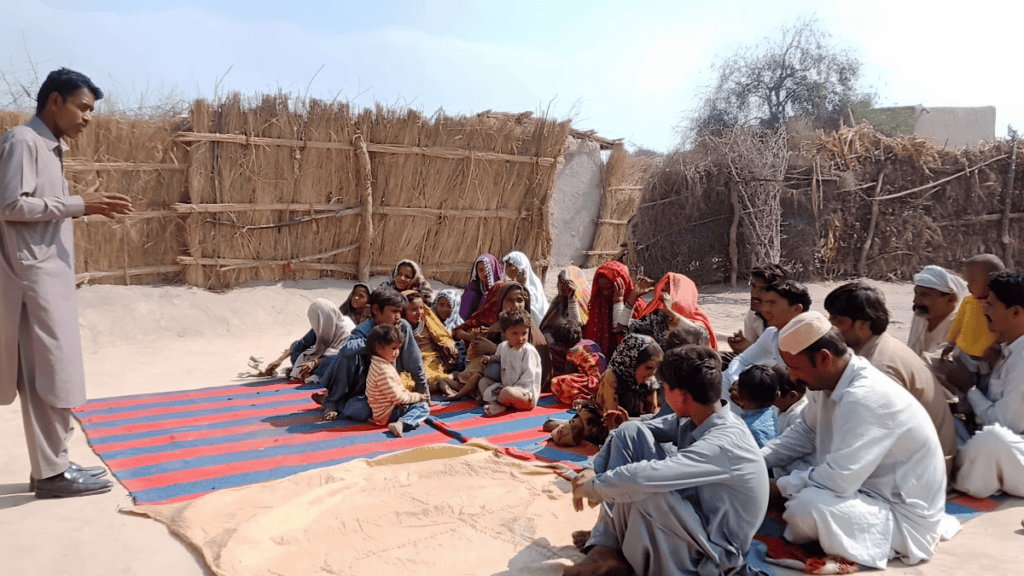
Rajeva took another Timothy to preach in this village, and another new church was planted. Even our Timothies have Timothies!
Shaukat had one institute in his house three years ago, which we fully outfitted; today, he has at least eight, with hundreds of students already serving. Three years ago, he had three churches; two years ago, he had eleven churches, and now, he has over 160.
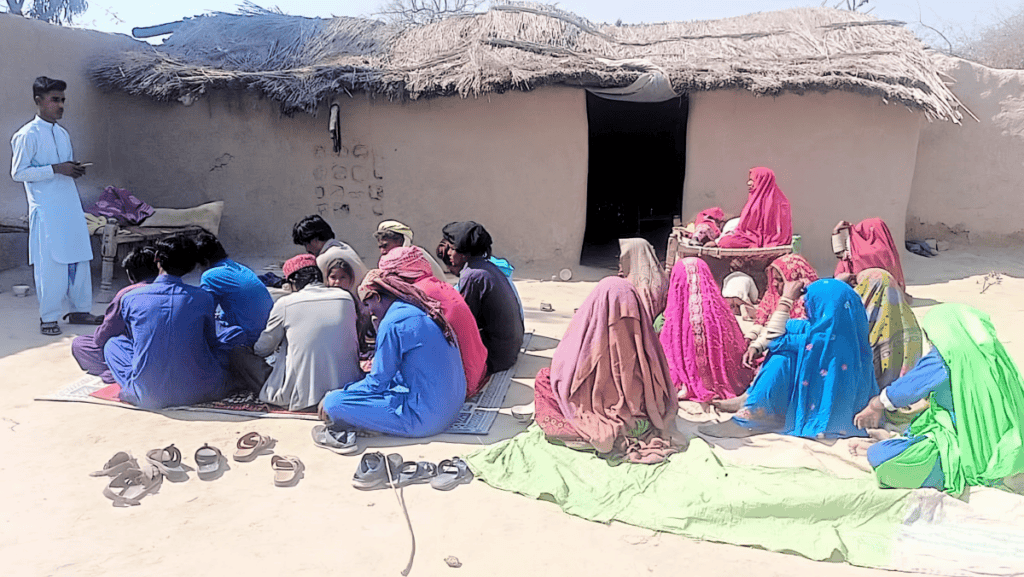
As Rajeva preached in front of a house that welcomed him, a new church was planted.



